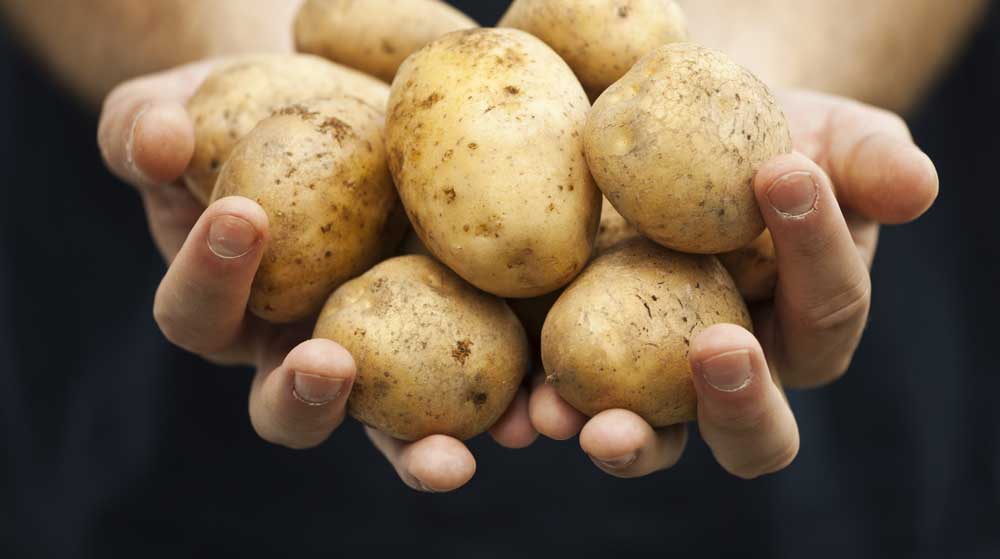 Did you know that the fiber, vitamins, minerals, and phytochemicals in a potato can help ward off disease and benefit human health?
Did you know that the fiber, vitamins, minerals, and phytochemicals in a potato can help ward off disease and benefit human health?
Heart health
The potato’s fiber, potassium, vitamin C, and vitamin B6 content, coupled with its lack of cholesterol, all support heart health. Potatoes contain significant amounts of fiber. Fiber helps lower the total amount of cholesterol in the blood, thereby decreasing the risk of heart disease.
Inflammation
Choline is an important and versatile nutrient that is present in potatoes. It helps with muscle movement, mood, learning, fat absorption and memory. It enhances early brain development. Vitamin C and quercetin function as antioxidants, protecting cells against damage from free radicals. Quercetin has an anti-inflammatory and antioxidant effect that protects the body’s cells from damage by free radicals
Bone health
The iron, phosphorous, calcium, magnesium, and zinc in potatoes all help the body to build and maintain bone structure and strength. Iron and zinc play crucial roles in the production and maturation of collagen. Phosphorus and calcium are both important in bone structure.
Immunity
Research has found that vitamin C helps reduce the severity and duration of a cold. Potatoes contain vitamin C, which acts as an antioxidant. Antioxidants help prevent cell damage and cancer and promote healthy digestion and cardiovascular functions.
Blood pressure
A low sodium intake is essential for maintaining a healthy blood pressure, but increasing potassium intake may be just as important. Potassium encourages vasodilation, or the widening of the blood vessels. Potassium, calcium, and magnesium are all present in the potato. These have been found to decrease blood pressure naturally.
Cancer
Potatoes contain folate. Folate plays a role in DNA synthesis and repair, and so it prevents many types of cancer cells from forming due to mutations in the DNA. Fiber intake from fruits and vegetables like potatoes are associated with a lowered risk of colorectal cancer.
Digestion and regularity
The fiber content in potatoes helps prevent constipation and promote regularity for a healthy digestive tract.
Weight management and satiety
Dietary fibers are commonly recognized as important factors in weight management and weight loss. They act as “bulking agents” in the digestive system. They increase satiety and reduce appetite, so that a person feels fuller for longer and is less likely to consume more calories.
Metabolism
Potatoes are a great source of vitamin B6. This plays a vital role in energy metabolism, by breaking down carbohydrates and proteins into glucose and amino acids. These smaller compounds are more easily utilized for energy within the body. Potatoes contain a compound known as alpha-lipoic acid (ALA), which helps the body to convert glucose into energy. Alpha-lipoic acid can help control blood glucose levels, improve vasodilation, protect against retinopathy in diabetic patients, and preserve brain and nerve tissue.
Skin
Collagen is the skin’s support system. The Vitamin C in a potato works as an antioxidant to help prevent damage caused by the sun, pollution, and smoke. Vitamin C also helps collagen smooth wrinkles and improve overall skin texture.

